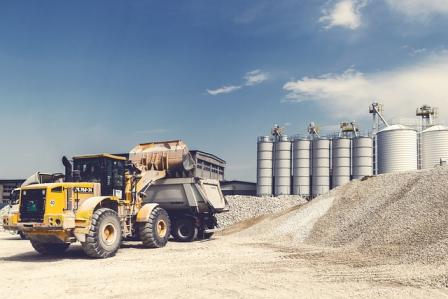There are heavy equipment gems out there. Look hard enough, and you’ll find real bargains, unique equipment, and exactly what you need. It takes a little patience and some know-how, but you’ll find what you need at the price you want to pay. As Inc.com points out, “Good deals matter a lot to small contractors.” But heavy equipment represents a big expense to small businesses and large.
It’s not like buying cattle or horses at auction. There aren’t many unknowns about machines. You’ll know the brand, the mileage, and the reported problems. But there’s still some things you can do to prepare.
4 tips to help you score at a heavy equipment auction:
- Be Prepared: All auctions have Terms and Conditions, and you should know what applies to your auction. A live auction will expect complete payment immediately. They prefer cash but usually accept certified funds or checks with a letter of credit. Some even accept wire transfers or credit cards. But you need to know before you show up.
Online auctions are an emerging platform that let you shop conveniently and remotely. But they have their own terms. You’ll need to know when payment is due and how it is expected. There may be limits on credit card maximums, letters of guarantee for cashier, company, or personal checks. There may be sales taxes, administrative fees, and other related expenses. And, you don’t want any surprises about pick up and delivery.
- Kick the Tires: If the auction is held at a bankrupt farm, you will get what you see. If you know the farm and farmer, you may know how the heavy equipment is behaving. If you don’t know them machine, you won’t have much chance to test it. You could be buying someone else’s problem.
Otherwise, auctioneers are providing as much information as possible. They know any buyer can shop and compare online, so it’s to their advantage to provide as much data as they can. Shoppers can research equipment model, year, condition, performance, and more. As long as that info is out there, you should use it well.
- Make it bona fide: Historically, buyers have been scammed. An auction is a forum or arena where property is sold to the highest qualified bidder under the published terms and conditions. It’s usually a “buyer beware” situation where you are buying the equipment for auction “as is.” Legitimate and professional auctions allow the forum to establish the selling price through competitive, so you may want to learn about the pros and cons of live auctions where you could be bidding against unethical setups.
Online auctions rule out unethical practices. You can reach larger networks, revolving inventories, and support teams to process and expedite your sale or purchase. Buyers and sellers are incentivized and anxious to move product. Digital “paperwork” makes transactions fast and firm.
- Value for Money: “Value” refers to what the purchase means to you. At charity auctions, for instance, it’s not unusual to find people bidding much higher than the market value for an item. That’s because the bidders are satisfying other values, like pride, competitiveness, and charitable goodwill.
Price is what a consumer is willing to pay. So, one shopper’s bargain isn’t another’s bargain. But other factors can influence your bid. If you need the equipment now, if it’s a rare find, if it is located nearby, if it’s a brand you prefer, any of these needs and more will influence the value you are looking for. The tip is you should have this figured out ahead of time.
A final tip!
As Modern Construction Solutions magazine says, “Some sellers are intent with disposing of equipment locally via physical auctions. However, spending time and money to transport equipment to an auction site diminishes a seller’s final return. Today, many sellers have turned to the Internet to sell their equipment from where it sits.” Online is a very good place to plan how to participate in heavy equipment auctions.





 How to7 years ago
How to7 years ago


 More4 years ago
More4 years ago


 More6 years ago
More6 years ago


 Interview4 years ago
Interview4 years ago


 Other Internet Tech6 years ago
Other Internet Tech6 years ago


 More6 years ago
More6 years ago


 Business Ideas6 years ago
Business Ideas6 years ago






